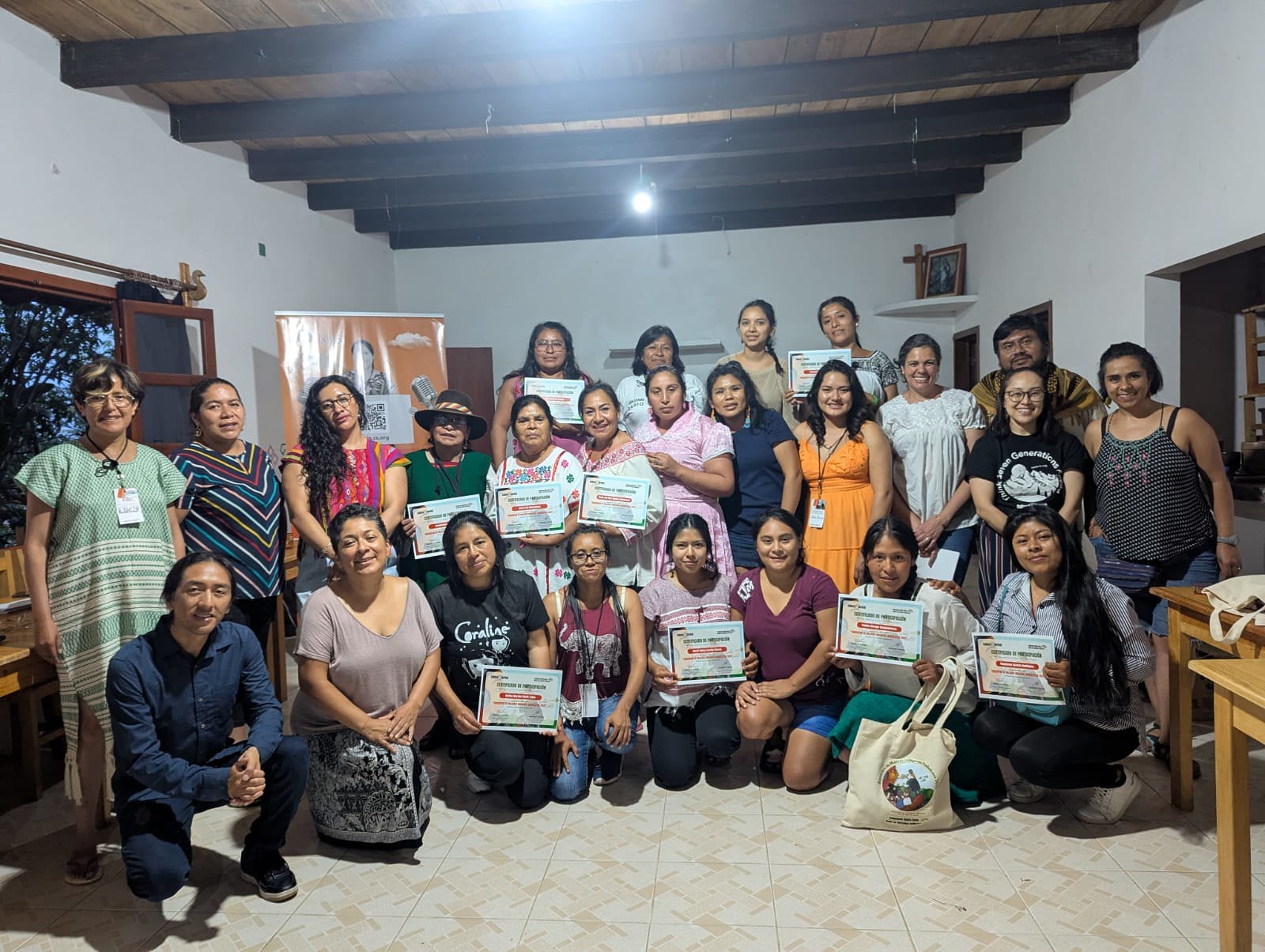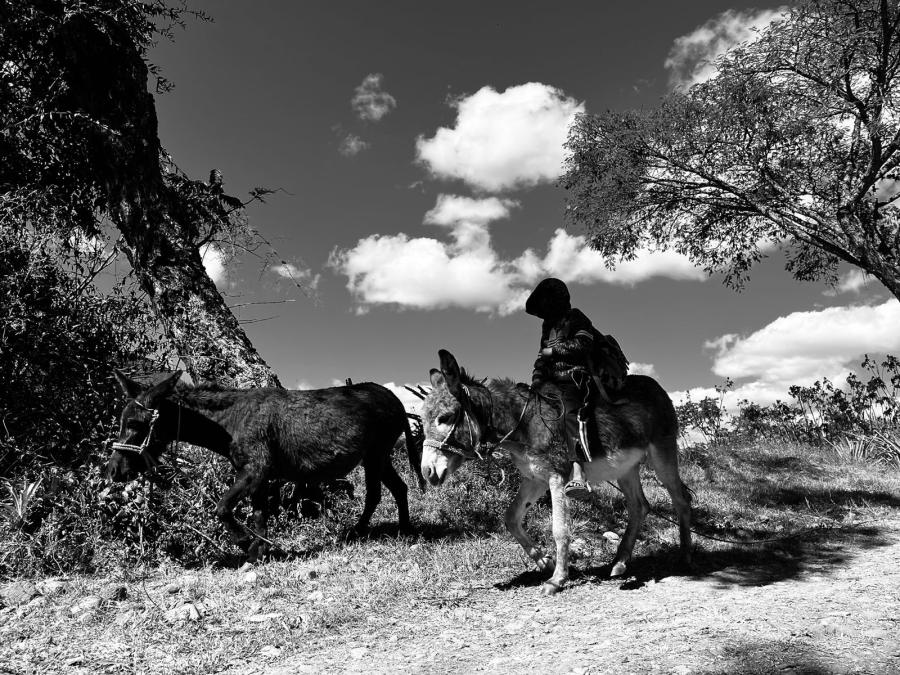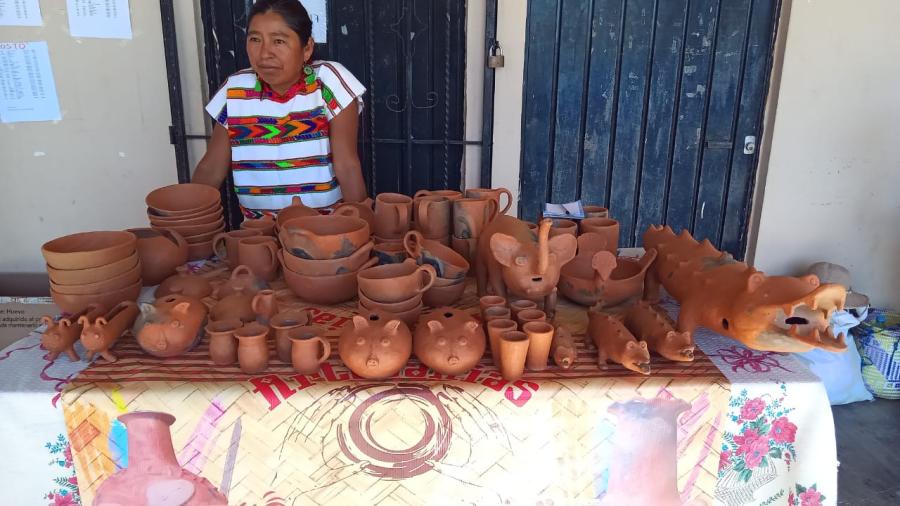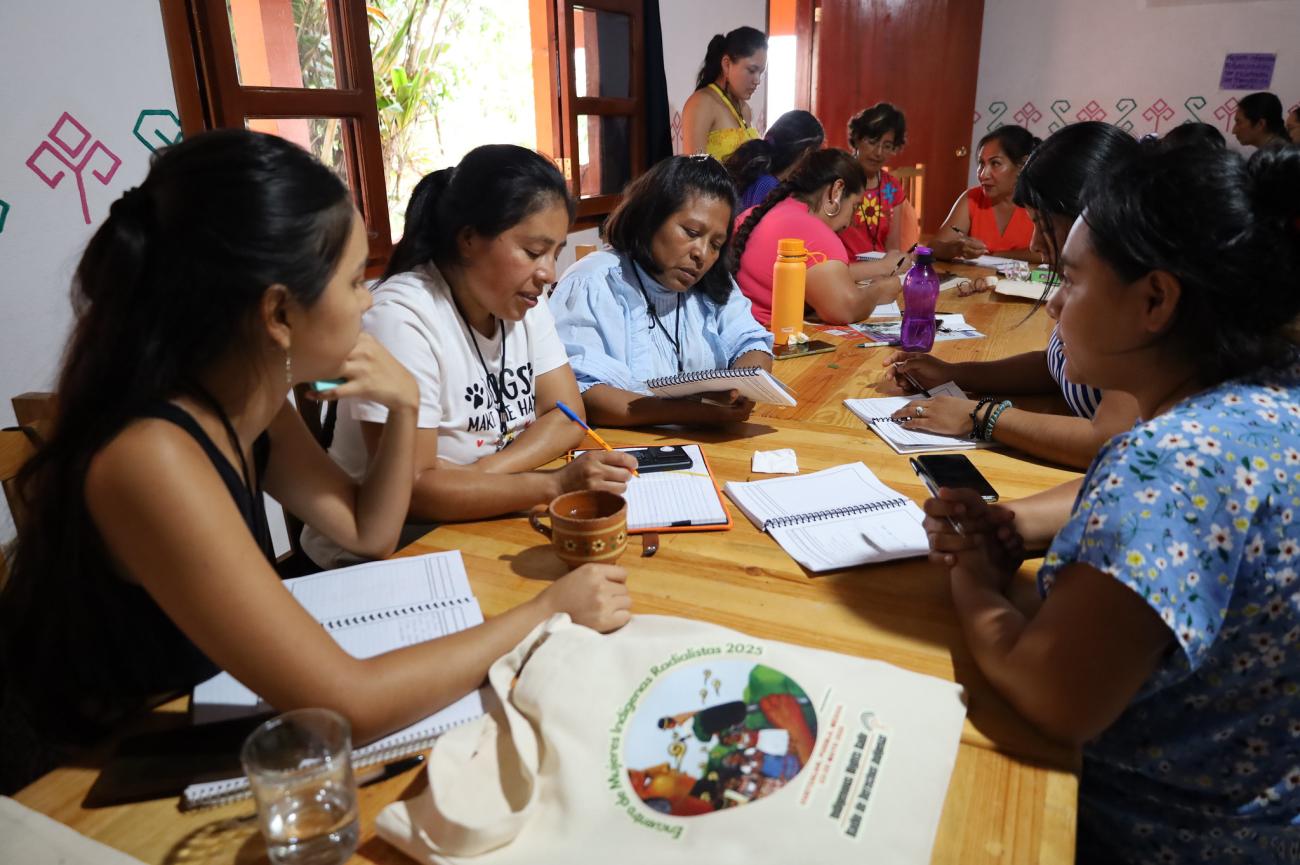
By CS Staff: Edison Andrango (Kichwa Otavalo), Roberto De La Cruz Martínez (Binnizá), Michelle de León, and Rosy Sul González (Maya Kakchiquel)
In Cuetzalan, Mexico, located in the Sierra Norte of Puebla, a region rooted in Totonac and Nahua heritage, the 6th Gathering of Indigenous Women Broadcasters took place from May 23 to 25, 2025. The event was organized by Cultural Survival’s Indigenous Rights Radio program and brought together 22 women from different regions of Mexico, as well as three Indigenous women radio broadcasters from Bolivia for the first time.
The meeting took place at Taselotzin Hotel, an ecotourism space managed by Nahua women that stands as a model of community organization, environmental care, and cultural promotion. This place became the meeting point for exchanging knowledge, experiences, and strategies aimed at strengthening the voice and leadership of Indigenous women in community media.
The central focus of the gathering was the development of capacities for Indigenous women communicators through a holistic approach that included topics such as impacts of mining for transition minerals, traditional medicine, food sovereignty, and community communication. Over the past six years, these workshops have established themselves as a benchmark for professional training in radio production, providing opportunities for Indigenous women to gain visibility and recognition within the community radio stations they represent.
In this edition, in addition to the workshops on research, scriptwriting, announcing, and editing, there was a key component: reflection on transition minerals and their impact on Indigenous peoples—a topic rarely covered in community media, yet deeply linked to the life and territories of Indigenous communities.
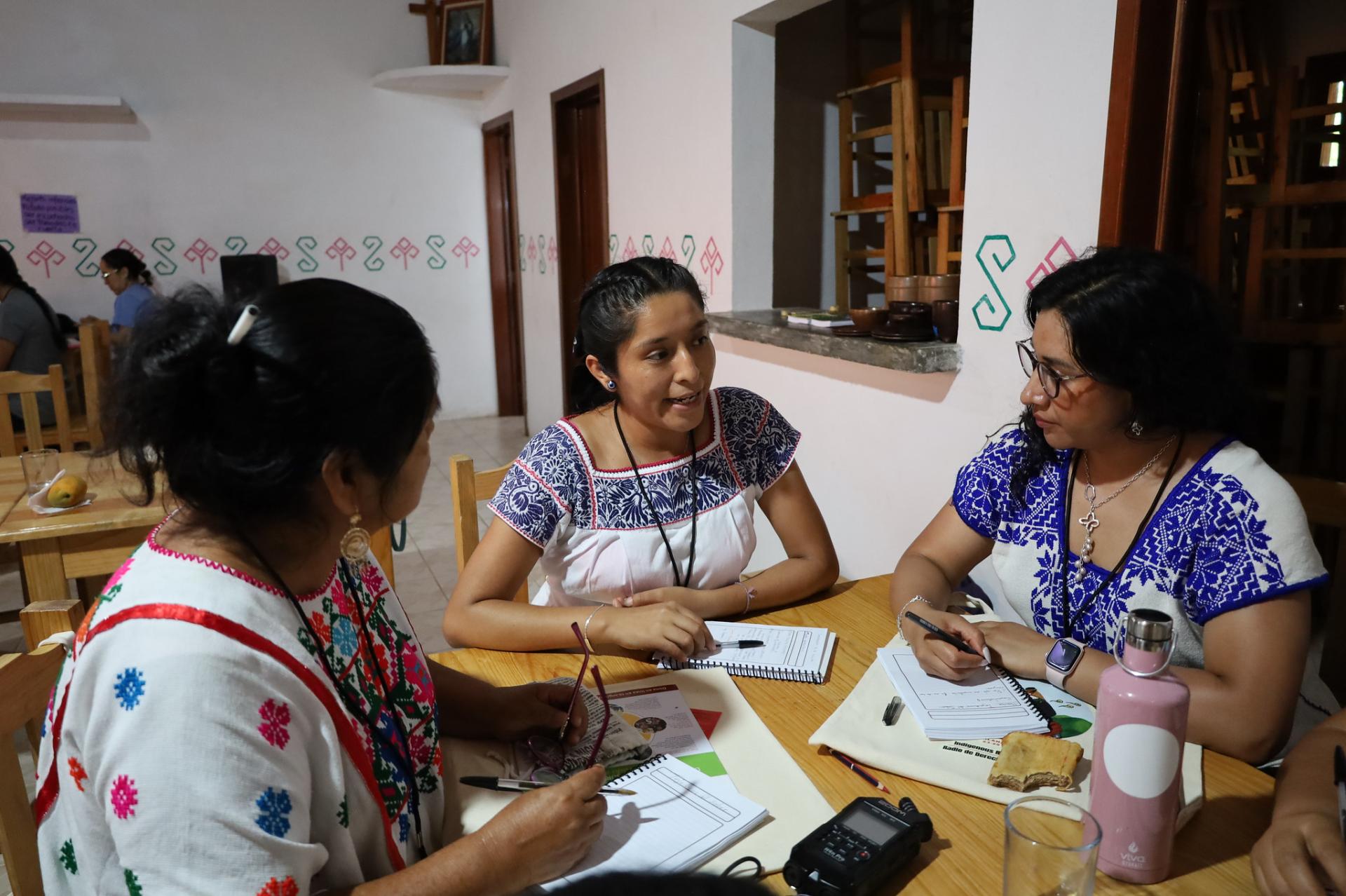
Impacts of Mining for Transition Minerals Workshop
The talk on transition minerals was led by Miguel Ángel Mijangos Leal, a member of Procesos Integrales para la Autogestión de los Pueblos (PIAP). He explained how the global demand for minerals used in “green” technologies is driving extractive projects in Indigenous territories, resulting in significant social, environmental, and cultural impacts.
During this session, participants shared their own experiences of how these projects affect their communities and reflected on the need to strengthen organization and access to information for territorial defense. They also discussed the relationship between mining, extractivism, and climate change, and how these issues disproportionately affect Indigenous women.
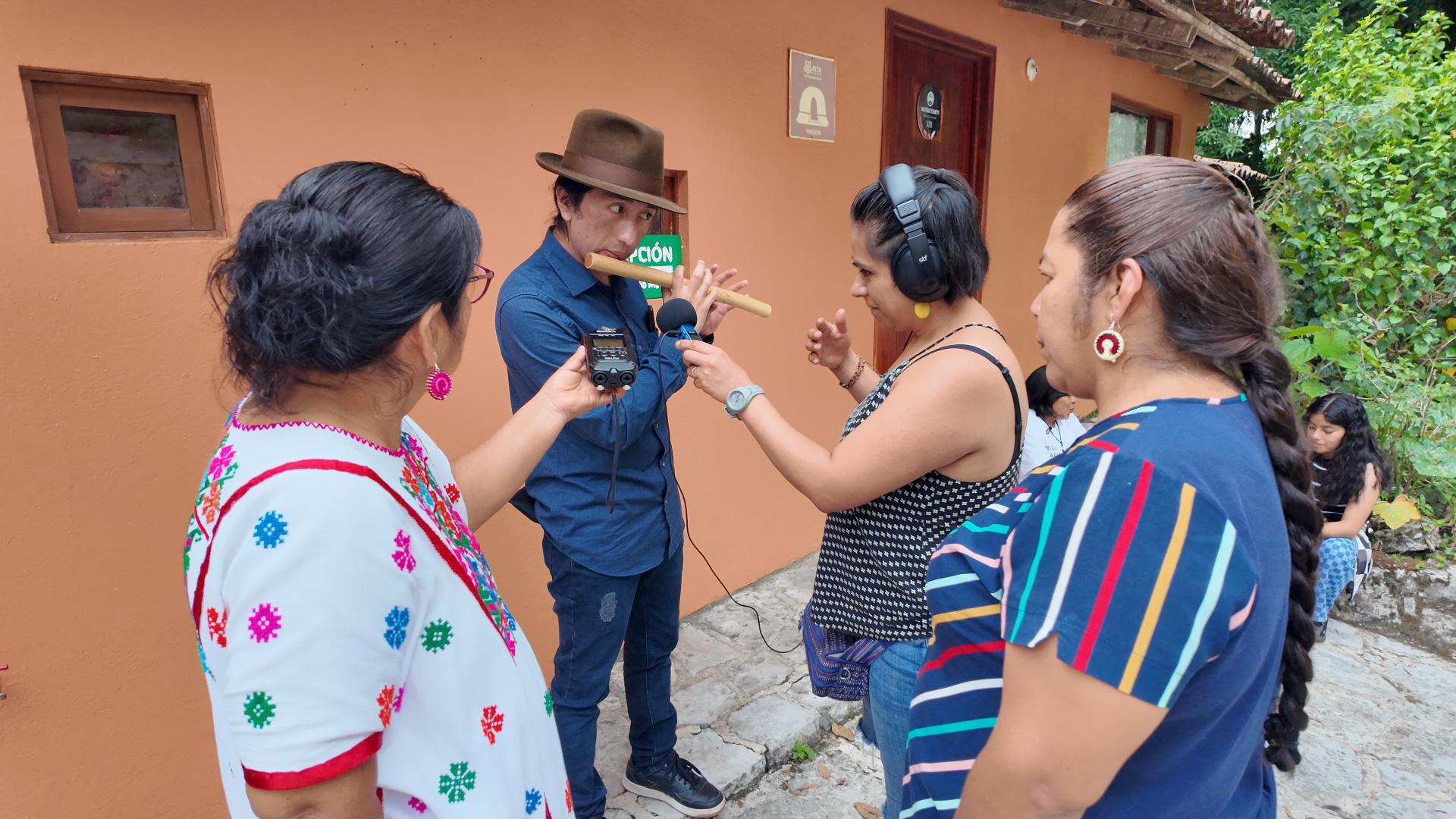
Announcing, Scriptwriting, and Production Workshops
Throughout the gathering, the women broadcasters experienced a collective creation process that went beyond technical training. Working in groups, they explored environmental and cultural realities from their community perspectives, sharing stories and knowledge that reflected the diversity of their territories. Each group chose a specific focus, ranging from water defense to the preservation of Indigenous languages, and developed it into a radio production.
The process included scriptwriting, announcing, and production workshops that strengthened participants' narrative skills and confidence behind the microphone. Jessica Moreno Gómez, an expert in culturally and linguistically relevant communication campaigns, led the research and scriptwriting workshop, encouraging participants to narrate their community realities from their own perspectives. Edna Hernández Ramírez, a Mexican artist and communicator, facilitated the announcing workshop, inviting them to explore the multiple tones and expressions of their voices through dynamic and expressive exercises. Meanwhile, Alejandra Carrillo Olano, radio producer and trainer in community media processes, shared key editing tools using Audacity software, allowing participants to go into the technical aspects of radio production.
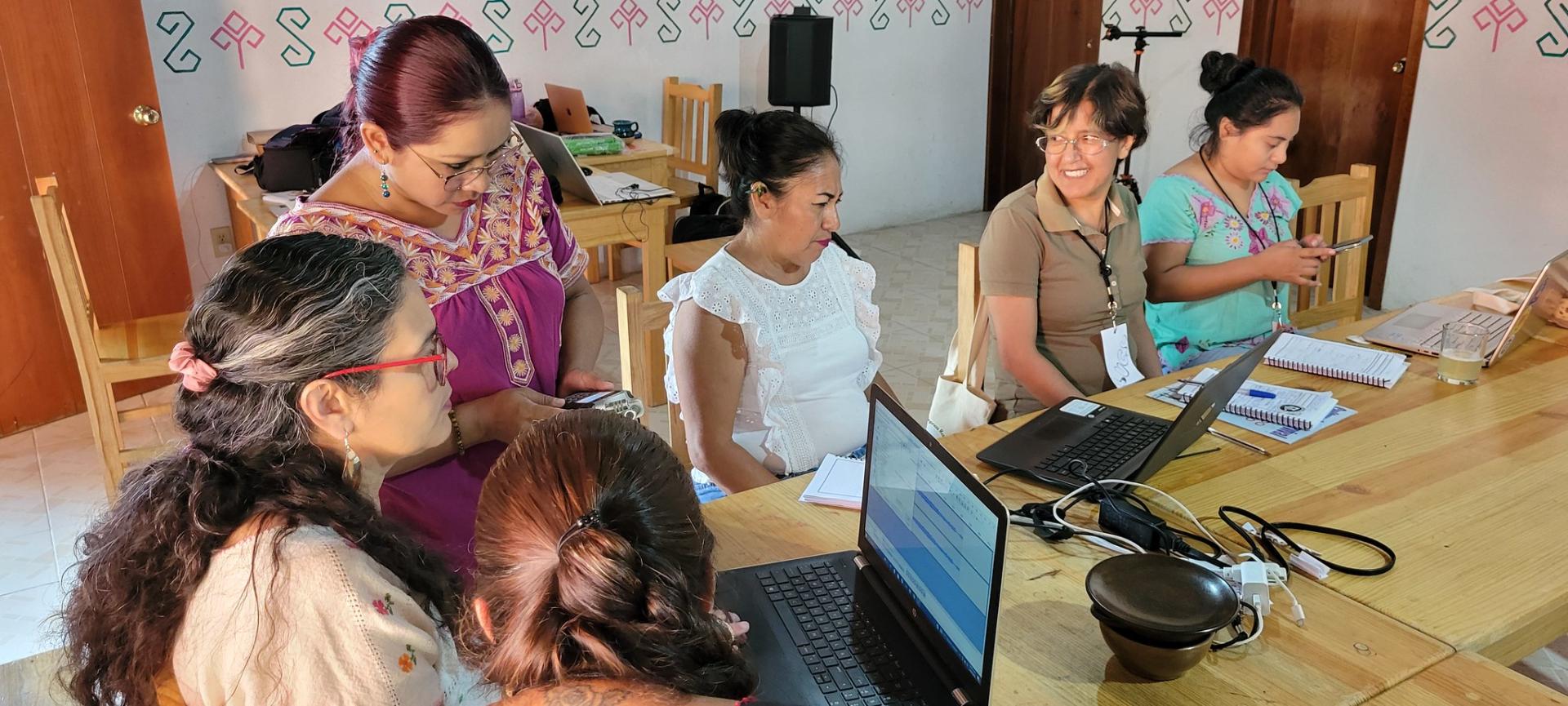
With the guidance of these experienced facilitators, the participants divided into groups based on their topics of interest. On the final day, they had the freedom to put their learning into practice, conducting interviews, recording sounds, and selecting music to create radio dramas, informative capsules, and sound pieces. Edison, our Indigenous Rights Radio assistant, also supported the participants by sharing traditional sounds from his community for use in their productions.
Through these activities, the gathering became much more than a technical workshop; it was a space of cultural affirmation and empowerment, where each production reflected the creativity, organization, and resilience of Indigenous women communicators. To close the gathering, a collective listening session was held, during which participants received feedback from facilitators and peers to further refine the skills and knowledge they had acquired.
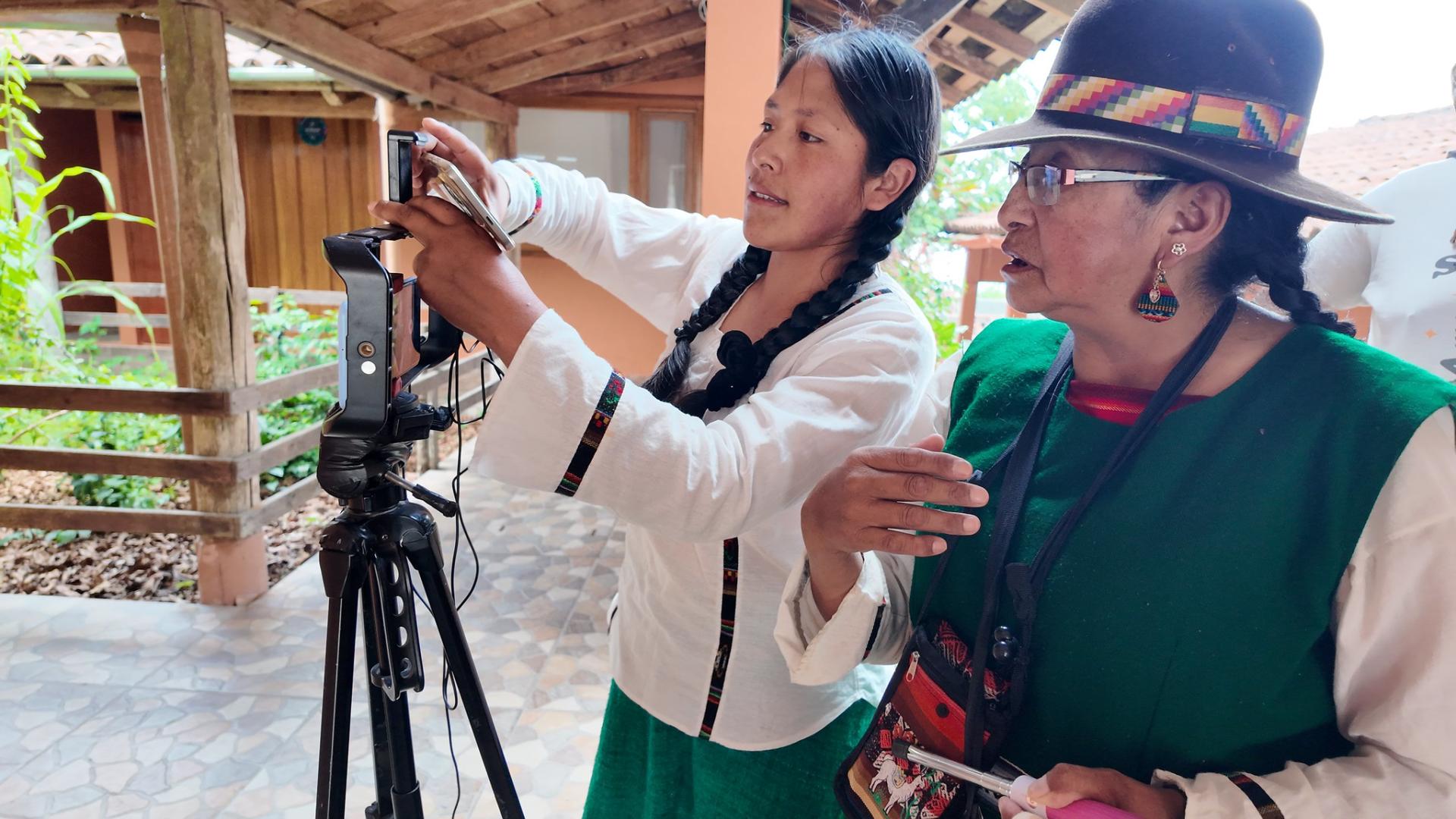
Production Agreements
Following the gathering, Indigenous Rights Radio established production agreements with some of the communicators who participated in the event. These agreements center on the theme of transition minerals—a growing concern in many Indigenous communities due to their close connection with climate change, resource extraction, and territorial defense.
The goal of these agreements is to promote the creation of radio programs addressing the social, environmental, and cultural impacts of mineral extraction, amplifying the voices of those directly affected by mining projects. Through these productions, the women broadcasters shared community testimonies. They disseminated technical information in both Spanish and Indigenous languages, strengthening local resistance processes and generating content that not only informs but also inspires collective action.
For Indigenous Rights Radio, the long-term vision is ambitious: to hold biannual workshops expanding participation to thirty women from Mexico and Central America, continuing to build a movement of women communicators who strengthen their community stations, manage independent funding, and produce high-quality content.
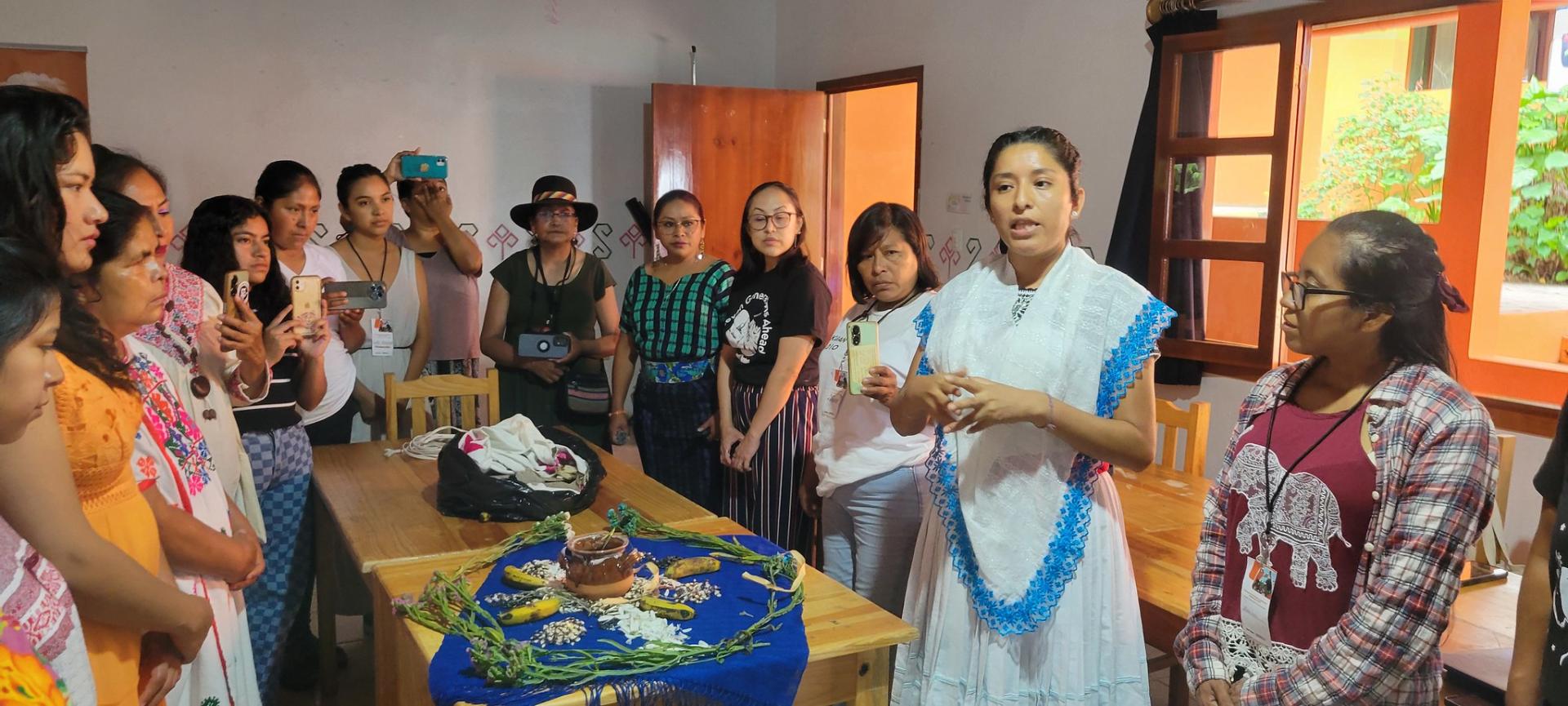
Lessons in Resilience
One of the most memorable moments of this gathering came from the Bolivian communicators, Gumercinda Quispe and Fénima Churqui, whose charisma and hands-on experience inspired everyone with their ability to communicate despite limited technological resources, reminding all that communication is a tool of identity and resistance. Gumercinda, an Aymara broadcaster from Apachita Radio in Bolivia, summed up the spirit of the event by saying: “Community radio is my life.”
